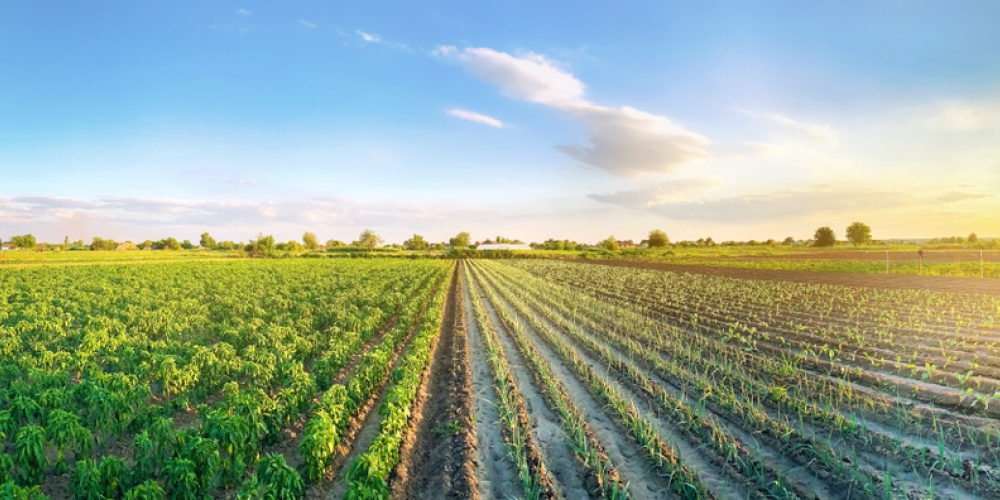
Our Sages equated farming with faith. Only a man of faith could put in months of backbreaking labour, knowing full well that all his efforts could go for naught with a few days of bad weather. It is the farmer who, more than others, realizes that his success is truly in the hands of G-d. This realization is meant to spur the farmer to “hearken to the commandments which I am prescribing today” in order to have “rains in your land at the proper time”.
Paradoxically, the tremendous human effort involved in farming is liable to lead one to attribute his good fortune solely to his own hard work, and not to the blessing of G-d. In effect, he transfers his faith in G-d to faith in his own prowess. Thus, the Torah has numerous laws at all stages of the agricultural process to remind the farmer that, despite all his efforts, it is G-d who is “the One who removes the bread from the ground”. Ploughing and planting, tilling and tithing, harvesting and herding are all regulated by Torah law.
“G-d spoke to Moshe at Mount Sinai…the land must be given a rest period, a Shabbat to G-d. For six years you may plant your fields…but the seventh year is a Sabbath of Sabbaths for the land” (25:1-4). Observance of the sabbatical year, the shmitta, is truly an act of faith, as the farmer must rely on G-d’s benevolence to provide him with enough food to sustain him and his family for the seventh year. Not only is the farmer proscribed from working the land, whatever produce remains from the sixth year must be shared with all. Perhaps there is nothing harder for a farmer than to watch as every seventh year, perfect strangers are allowed to trespass on his field, eating the crop that the farmer worked so hard to produce. “The produce of the land may be eaten by you, your slave, maidservant, your labourer and your resident who dwells with you” (25:6). The farmer was thus reminded that not even his land is truly his.
The context of shmitta, introduced by the expression “G-d spoke to Moshe at Mount Sinai”, has troubled our commentaries. After all, weren’t all mitzvoth given at Sinai? Why single out shmitta? Apparently, recognizing that G-d is the ultimate provider of all of our material blessings is the key lesson of Sinai. Yes, we work hard; G-d even demands that we do so (relying on miracles is prohibited in Judaism), but it is only the combination of man’s efforts and G-d’s blessing that produces prosperity. Interestingly, in the midst of the Torah’s detailed description of the laws of shmitta (and Yovel, the jubilee year) we find the laws of Ona’ah. These laws prohibit any form of price fraud (i.e., overcharging), cheating, and causing needless mental anguish by pricing a product that you have no intention of buying.
Intrinsic to the proper observance of shmitta is integrity in our monetary dealings. This is what Sinai is all about. A simple reading of the end of Chapter 19 of Leviticus, labeled by Rashi as containing “the majority of the essence of the Torah”, bears out this point. “You must have an honest balance, honest weights, an honest dry measure and an honest liquid measure; I am the Lord who took you out of Egypt” (19:36). Commenting on this strange juxtaposition, Rashi states that the Exodus was “for this purpose”. G-d took us out of Egypt so that we would be 100% honest in our monetary dealings. Unbelievable! If not, Rashi continues, “I (G-d) who punished the Egyptian firstborn will punish those whose who have ’false weights‘”.
Shmitta, Yovel, Ona’ah are the manifestations of Sinai. Recognizing that we are only the trustees of our wealth, and thus can only use it according to G-d’s instructions, defines a truly religious person. Is it any wonder that the first question we will be asked after our 120 years of life are up (the Final Exam) is Nasata v’Natata b’Emunah (were your monetary dealings conducted faithfully)? If not, then your Emunah, your faith in G-d—the provider of wealth—is sorely lacking.
Sefer Vayikra is the central book of the Chumash, one that was traditionally the first Sefer young children were introduced to, and the Sefer with largest number of mitzvoth. The operation of the Mishkan, the “dwelling place of the Divine presence”; the role of the Kohanim, the teachers of the Torah; and the quest for holiness are detailed here. It is putting Sinai into practice. The true path to holiness, spirituality and closeness to G-d can be found in our wallets. Let us open them appropriately.



